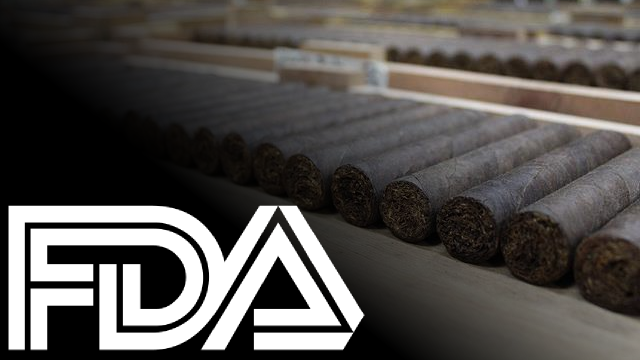
By now, you’ve probably heard or read about the findings of a new long-term study of cigar smoking that generated headlines like this one from Fox News: “Cigars just as harmful to health as cigarettes, study says.†Well, don’t toss your Davidoffs in the dustbin just yet.
A closer look inside the numbers, along with some helpful responses from the study’s lead researcher, show that the results aren’t nearly that clear for those of us who enjoy premium, hand-rolled, all-tobacco cigars.
First, and perhaps most importantly, the study made no distinction between those who smoke machine-made cigars and those who smoke premium cigars. In fact, that information wasn’t even collected in the survey of 25,522 subjects for the 1999-2012 National Health Nutrition and Examination Survey, Dr. Jiping Chen, an epidemiologist in the Food and Drug Administration’s Center for Tobacco Products, told me in an email.
Consequently, there was also no consideration of differences in smoking, such as inhaling/not inhaling or the frequency of consumption, Dr. Chen said. “No information was collected in the study on the types of cigars smoked or reasons why cigars were smoked.â€
So, someone who sucks down a half-dozen White Owls a day is a “cigar smoker,†the same as someone who lights up an Arturo Fuente Hemingway once a week. “All cigar smokers were treated as a single group,†Dr. Chen said of the survey that was the basis for the cigar study.
This is important because, without getting overly technical, the study compared levels of five “biomarkersâ€â€”substances scientists use to measure things like disease or environmental exposure—found in cigar smokers and non-smokers. To get the measurements for cigar smokers, she said, researchers took “the average levels of biomarkers of all cigar smokers.â€
Now, to put that in perspective, bear in mind there are roughly 350 million premium cigars sold annually in the United States. Machine-made cigars are sold in the billions. In other words, the premium cigar market is just a tiny fraction of the cigar market.
So it stands to reason that the cigar-smoking group in the study would be vastly tilted toward those who smoke machine-made cigars, and it’s also as likely that an overwhelming percentage of them utilize cigars as do those who smoke cigarettes—as a nicotine delivery system, not for enjoyment, as do most premium-cigar smokers.
Averaging things like this can be dangerous. If, for example, you take the average of Bill Gates’ assets and my assets, we both appear to be very wealthy men.
One other point from the research that I find worth noting is the fact that there was no assessment of the impact of the 2009 SCHIP tax increases. Those undoubtedly led an unknown number of cigarette smokers to turn to machine-made “cigars†because they were taxed at a lower rate and offered a cheaper alternative. To my mind, while these people may now be classified as cigar smokers, they’re really cigarette smokers under a different name.
This contention was at least partly supported, I think, by findings that cigar smokers who were former cigarette smokers had higher levels of the two biomarkers found only in tobacco than did those who hadn’t smoked cigarettes before.
Now, let’s be honest. I don’t think anyone could reasonably dispute the notion that if you smoke cigars like cigarettes you’re almost certainly engaging in the same highly risky behavior as a cigarette smoker. And I can’t imagine that, in this day and age, that would surprise anybody. But that isn’t even remotely the way nearly all of us who smoke premium cigars actually smoke them. We don’t inhale, we don’t smoke all day long, and we aren’t addicted to nicotine.
We do recognize that there is some added danger to smoking premium cigars, but we also know that it is relatively small, and it’s a risk we’re willing to take. Just as we willingly take many other risks in our lives to do things we enjoy.
And as the FDA continues to consider its position on regulating cigars—and whether to grant an exemption for premium cigars—the distinctions I’ve pointed out could make a world of difference. It would be more than a shame for this research to help derail the efforts to secure that exemption because I believe it clearly isn’t applicable.
One bright spot in all this is that the very helpful FDA press officer who helped arrange my email exchange with Dr. Chen told me she will forward this to those involved in the consideration of cigar regulations.
Hopefully, they’ll read it and reach the right conclusion.
–George E
photo credit: Stogie Guys
![]()
![]()
![]()


 In fact, much of the cigar captures the spirit of the original Epoca that launched Nat Sherman into the cigar business in 1929. From box art to its medium strength, this is a celebration, much like the Joel Sherman 75th Anniversary released earlier this year.
In fact, much of the cigar captures the spirit of the original Epoca that launched Nat Sherman into the cigar business in 1929. From box art to its medium strength, this is a celebration, much like the Joel Sherman 75th Anniversary released earlier this year.

 Patrick Ashby
Co-Founder & Editor in Chief
Patrick Ashby
Co-Founder & Editor in Chief Patrick Semmens
Co-Founder & Publisher
Patrick Semmens
Co-Founder & Publisher George Edmonson
Tampa Bureau Chief
George Edmonson
Tampa Bureau Chief